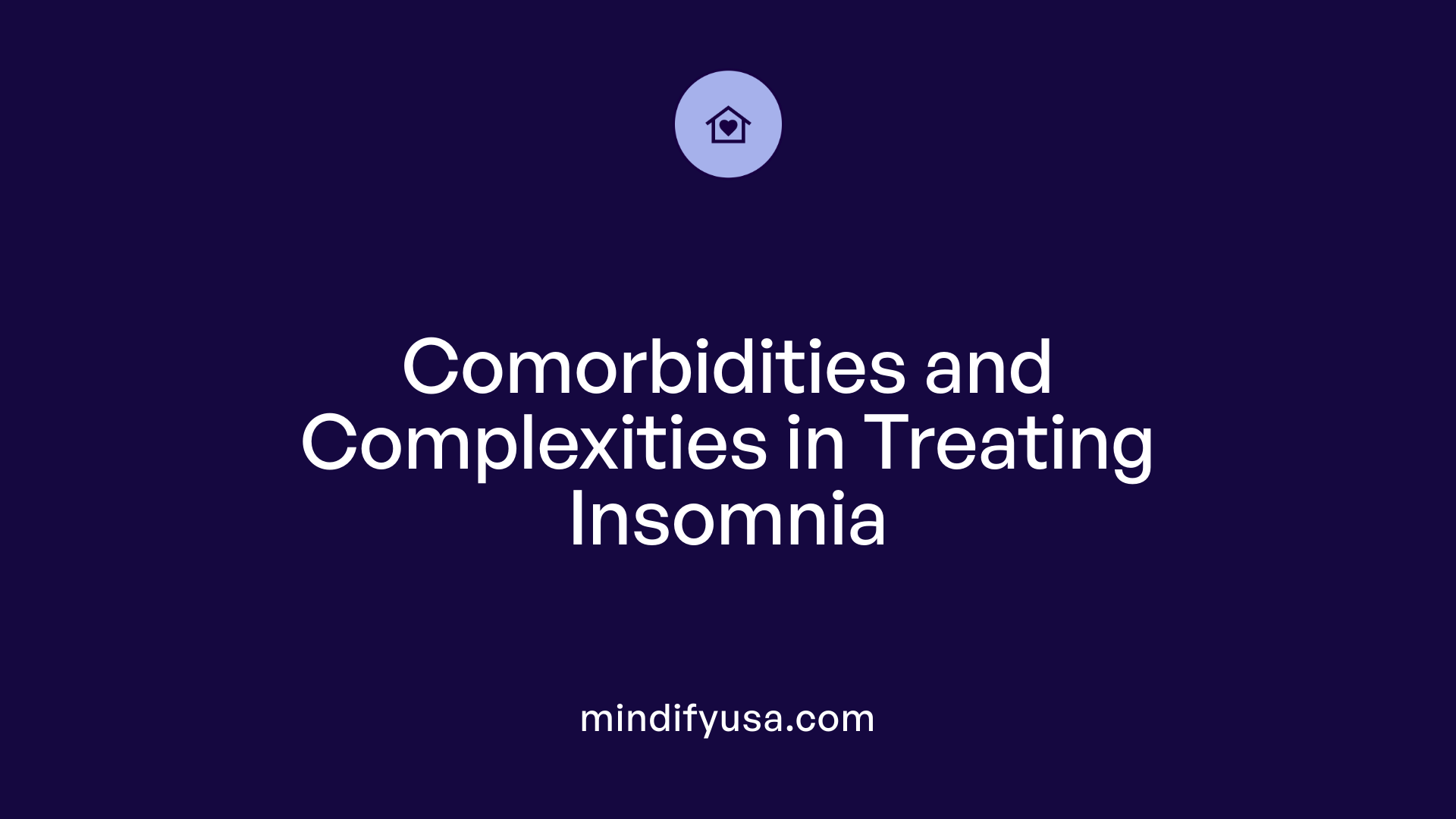Understanding the Importance of Medication Review in Insomnia Treatment
Insomnia is a prevalent sleep disorder characterized by difficulty initiating or maintaining sleep, resulting in impaired daytime functioning. Its management involves a combination of behavioral strategies, lifestyle modifications, and pharmacological interventions. Given the widespread use of sleep medications, a careful review and ongoing assessment of these drugs are vital to ensure safety, efficacy, and appropriateness. This article explores the critical role of medication review in managing insomnia symptoms, emphasizing effective strategies, best practices, and considerations for special populations, particularly older adults.
The Scope and Impact of Insomnia

Prevalence and Types of Insomnia
Insomnia is a common sleep disorder characterized by difficulty initiating, maintaining, or consolidating sleep, despite adequate opportunity for rest. It is estimated that transient insomnia affects up to 80% of the population annually, whereas chronic insomnia affects approximately 15%. Transient insomnia often resolves spontaneously, while chronic cases may persist for months or years, significantly impairing daily functioning.
Insomnia can be categorized into sleep onset, sleep maintenance, or mixed types, with various medications and behavioral strategies tailored to the specific pattern. Understanding these distinctions helps in selecting appropriate treatments and managing expectations.
Impact on Health and Quality of Life
Insomnia has far-reaching effects on physical, mental, and social health. It leads to daytime sleepiness, cognitive impairment, mood disturbances, and reduced productivity. Long-term insomnia is associated with increased risks of psychiatric conditions such as depression and anxiety, as well as physical illnesses like cardiovascular disease, hypertension, diabetes, and respiratory disorders.
Moreover, poor sleep quality diminishes overall quality of life and can exacerbate existing medical conditions, creating a cycle of worsening health. Recognizing these impacts underscores the importance of effective management.
Associated Comorbid Conditions
Insomnia often coexists with other health issues, including psychiatric disorders like depression, anxiety, and suicidal ideation. It is also linked to neurodegenerative diseases such as Alzheimer’s, and frequently occurs alongside medical conditions such as chronic pain, respiratory diseases, and neurologic disorders.
This co-occurrence complicates treatment and emphasizes the need for a comprehensive approach that addresses both sleep disturbances and the underlying or comorbid conditions.
| Aspect | Details | Additional Information |
|---|---|---|
| Prevalence | 10% of adults globally, 10-20% in primary care | Influenced by age, gender, and health status |
| Types of Insomnia | Transient, acute, and chronic | Differ in duration and severity |
| Health Impact | Cognitive decline, cardiovascular risk, mood disorders | Affects quality of life and can worsen existing health conditions |
| Common Comorbidities | Depression, anxiety, depression, cardiovascular, respiratory, neurologic, cancer | Co-occurring disorders demand integrated management |
| Treatment Approaches | Behavioral (CBT-i), pharmacologic, lifestyle modifications | Combining therapies often yields best results |
| Pharmacologic Options | Benzodiazepines, Z-drugs, melatonin receptor agonists, orexin antagonists, antidepressants | Varying efficacy, safety profiles, and appropriateness for individual patients |
| Importance of Review | Regular medication review crucial, especially for long-term or elderly patients | Aims to minimize dependence, adverse effects, and tailor treatment to evolving needs |
Understanding the vast scope and consequence of insomnia helps in framing appropriate, personalized treatment strategies that improve outcomes and enhance quality of life.
The Essential Role of Ongoing Evaluation in Insomnia Management
Effective management of insomnia necessitates not only selecting appropriate pharmacologic and non-pharmacologic treatments but also engaging in regular medication review. Such reviews ensure therapies remain aligned with patient needs, minimize adverse effects, and allow for deprescribing when necessary. With the evolving landscape of sleep medicine—including newer agents like dual orexin receptor antagonists—healthcare professionals must stay informed about the safety profiles, long-term effects, and best practices for medication adjustment. The collaborative effort between clinicians, patients, and pharmacists enhances personalized care, ultimately leading to improved sleep quality, reduced medication reliance, and better health outcomes. Continuous education and adherence to evidence-based guidelines are paramount to optimizing insomnia management through careful medication review.
References
- Medications for the Treatment of Sleep Disorders: An Overview - PMC
- Cognitive-Behavioral Therapy for Insomnia: An Effective and ...
- Insomnia - Diagnosis and treatment - Mayo Clinic
- A 2023 Update on Managing Insomnia in Primary Care
- Clinical Practice Guideline for the Pharmacologic Treatment of ...
- Overview of the treatment of insomnia in adults - UpToDate
- Efficacy and tolerability of pharmacological treatments for insomnia ...
- Treating insomnia with medications | Sleep Science and Practice
- Management of Chronic Insomnia Disorder in Adults - ACP Journals






































































































